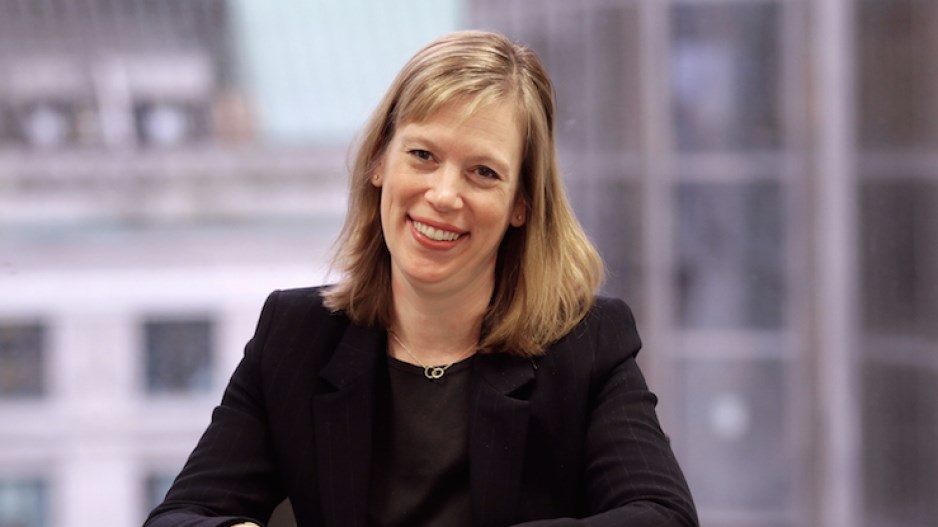By definition, an executive is in charge of an organization and its direction. It is rare, however, that an executive gets tasked with helping to determine the future path of an entire profession as it faces critical change.
But that’s exactly the reality – and opportunity – facing Lori Mathison, president and CEO of the Chartered Professional Accountants of British Columbia (CPABC).
Mathison holds a number of high-profile titles in the B.C. business world, including a just-concluded tenure as chair of the Greater Vancouver Board of Trade. But a number of her current responsibilities – executive sponsor of the CPA Professional Education Management Committee, member of the oversight committee for CPA Canada Foresight and chair of the national Digital Transformation Task Force for CPAs – reflect just how much her attention is now focused on training the next wave of Canadian professional accountants.
And it will not be business as usual. Mathison noted that as the business world changes around it, the CPA profession must change as well, not just to keep up but also to emerge and guide companies, governmental bodies and individuals into a digitized economy.
“Data is in everything,” Mathison said. “It is something that was there years ago, but now it informs our decision-making process minute-by-minute. It’s about the integrity of data and how it is used, and CPAs need to help ensure and validate the integrity of the data, as well as help turn that data into the best possible decision-making that they can. That’s simply not part of the training in the past, but now it must be.”
The national CPA profession in now undergoing Phase 2 of the Canada Foresight initiative, which is an ambitious project to anticipate the future in an environment where knowledge of technologies like blockchain and data analytics will be as important as expertise in technical accounting, taxes and finance.
Mathison said the project’s findings will play a key role in guiding Canadian CPAs on how to dedicate resources in the near future – to make sure that Canada’s professional accountants are “fit for purpose” as their roles change within a digitized environment.
“We need to make sure that they are equipped to be the CPA that the public needs,” she said. “I think the lens on the profession has really shifted. Getting your CPA designation is no longer the end of the road. To me, that’s only the beginning of the journey. And we need to really as a profession embrace how we need to be constantly learning, unlearning and relearning something new, so as to keep up with what society needs from us.
There are undoubtedly challenges. Mathison said there is a danger for Canadian CPAs to overbuild their training programs – “we don’t want our programs to go on for 10 years,” she joked – with all the new skills she would like future professional accountants to be equipped with. Also, she wants to maintain the “essence” of CPAs, meaning that certain core accounting competencies need to be maintained.
“There are a lot of basics the profession is built upon, and to decide on not teaching something anymore to focus on analytics is a huge decision,” she added. “So the challenge is, what can we take away to make room for the future … while maintaining the essence of a CPA? It’s about finding the right balance.”
Recent surveys of CPABC members show that Mathison’s thinking has tremendous support. A number of younger members responded that they are excited at the opportunities new technology will afford them. Some noted that the use of automation for more mundane accounting tasks may open up more time for them to engage in “higher-value insights,” something that Mathison said is crucial for the future well-being of the profession.
To identify the skills new CPAs need and to provide the education and support structure to ensure they succeed in these new environments will be of vital importance, she added.
“The tendency now is to increasingly rely on real-time decision making,” Mathison said. “People are not waiting until quarterlies or annual financials. So we need to be constantly training CPAs to ensure they are constantly adding value and make sure providing guidance that people can really count on….
“At a very high level, the entire economy is now focused on digital transformation in one way or another. So to stay relevant as a profession, we need to do the same.”
Business in Vancouver celebrates the 21st annual Influential Women in Business Awards, March 6 at the Fairmont Waterfront hotel. For more information, visit www.biv.com/iwib.




